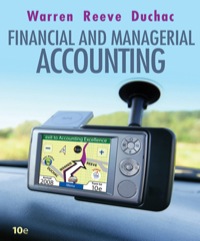Question 1 Adrian started a home delivery service business of freshly fruit and vegetables. He buys products early every morning from local wholesalers and visits the local shops within a 20-miles radius of his home. He recently took out a loan to buy a new van. His business is holding very small amount of inventory of non-perishable foods. You can find below the trial balance for his business at the end of the first year of trading: Adrian Trial Balance as of 30 September 2021 Debit Credit Capital 15,000 Sales 93,000 Bank loan 4,000 Purchases 64,370 Wages 8,500 Motor van 16,500 Annual service of the 800 van Fuel 4,400 Road tax 280 Motor insurance 1,800 Replacement tyres 250 Loan interest 560 Drawings 14,000 Bank balance 540 112,000 112,000 Closing inventories at 30/Septem! + 4021 were valued at 1,080. A. Adrian incurred many expenditures related to his van during his first year of trading. Identify all the costs related to the motor van and determine which should be treated as capital expenditure and which should be treated as revenue expenditure. a) Capital expenditure: Motor van Revenue expenditure: Petrol, cost and Annual service of the road tax, motor insurance, drawings, replacement tyres van b) Capital expenditure: Motor Revenue expenditure: Purchases, van cost and Annual service of Petrol, road tax, motor insurance, the van drawings, replacement tyres + c) Capital expenditure: Motor Revenue expenditure: Annual van cost service of the van, Petrol, road tax, motor insurance, replacement tyres d) Capital expenditure: Motor Revenue expenditure: Annual van cost service of the van, Petrol, road tax, motor insurance, replacement tyres, Drawings 2: | The table below presents the ratios have been computed for a manufacturing business and a supermarket. Company 1 Company 2 Current Ratio 1.48:1 0.45:1 Acid Test Ratio 0.96:1 0.24:1 Required: A. Choose from the following options the true statement based on the information from the table: a) Company 2 is a supermarket b) Company 1 is a supermarket c) Both Company 1 and 2 are manufacturing businesses d) Both Company 1 and 2 are supermarkets Question 3 Which of the following is a Trial Balance error? 1 i. Omission: a transaction could have been completely omitted from the books of account ii. Commission: a transaction may have been entered in the correct type of account but in the wrong personal account Principle: a transaction may have entered in the wrong type of account III. a) Only i and ii b) Only i and iii c) Only ii and iii d) All of the above










